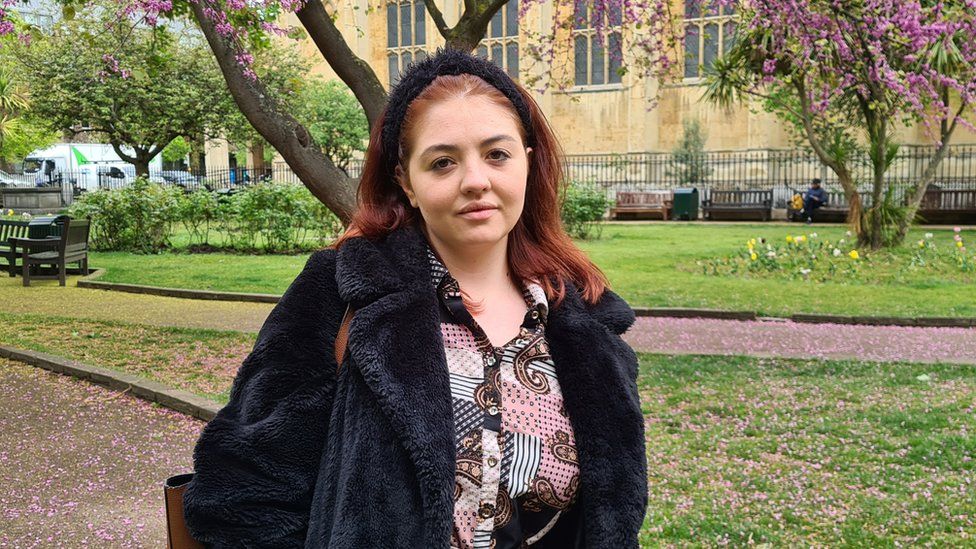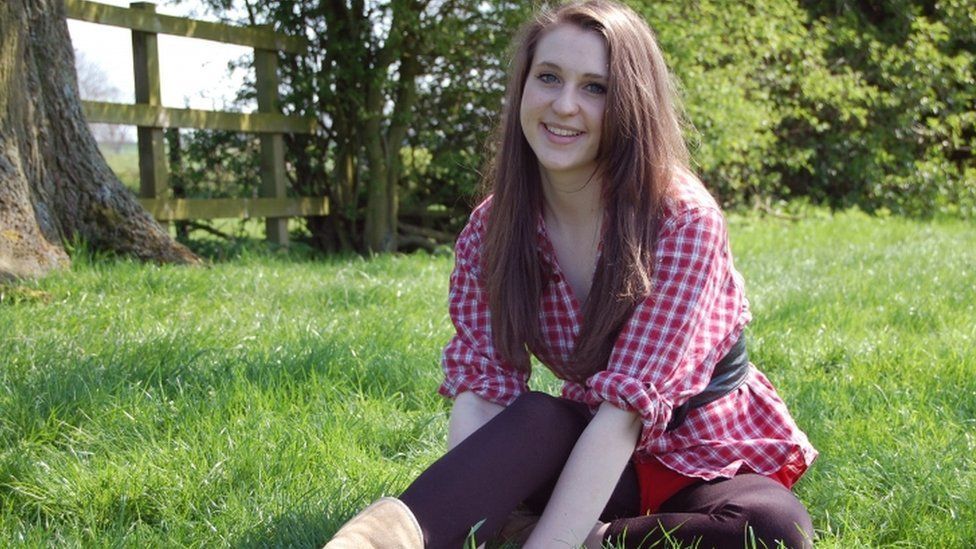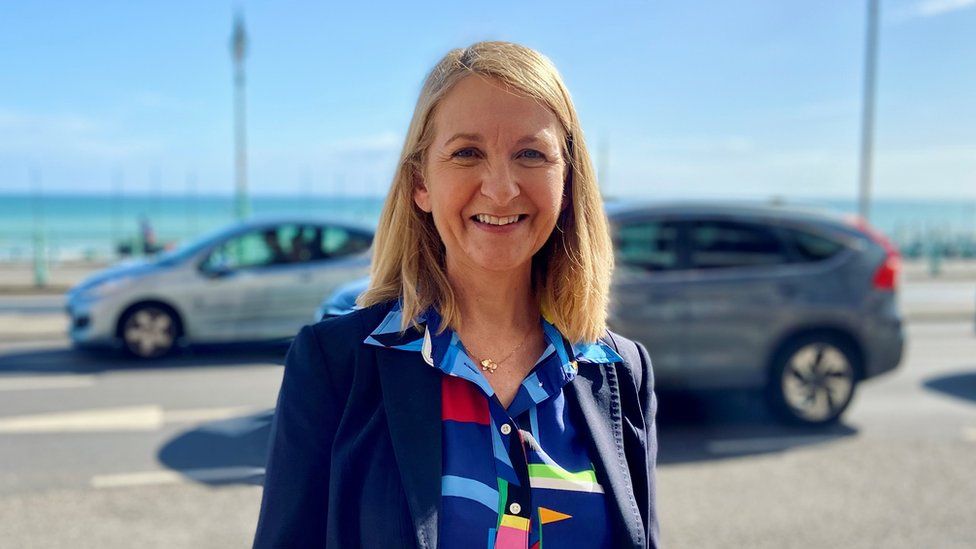Some police forces fail to issue a single Stalking Prevention Order, as offences rise during lockdown.

image copyrightFamily handout
New powers to protect stalking victims are not being used by some UK police forces, a BBC investigation has found.
Stalking protection orders (SPOs) were introduced in January last year to make it easier for victims to get support.
Despite a rise in stalking offences during lockdown, some police forces had not issued a single order.
The Home Office is set to meet with the police to find ways to bolster the figures as forces look to improve training for officers.
Victims of stalking have called for better education and training so officers can recognise when action is needed to apply for an order.

Amy, 26, was stalked by a man she met on a dating app.
The man bombarded her with messages about her sexual health and contacted her friends and family through social media.
“He accused me of giving him HIV, even after I showed him my negative test results,” she said.
“I was petrified. It triggered my mental health and I did feel quite suicidal at that point. Nothing I said to him was stopping him from messaging me.”
“I didn’t feel that I was protected by the police at all, and I had to go back to my family home. He knew where I lived and where I worked. He had called my work and had spoken to my manager to find me.”
Amy was granted a Stalking Protection Order in February and said it had made a difference.
She said: “It makes me feel safe, I was always looking over my shoulder. But now I have my protection order I don’t feel the need too. Police officers didn’t know what it is or how it works”
Jessica – not her real name – experienced stalking behaviour from someone she employed at the restaurant where she works.
She experienced abuse online, personal threats and vandalism to her workplace, but struggled for it be taken seriously.
She said: “It was impossible. They wouldn’t put it together as one case. Every single time I phoned up to report an incident they would log it as a separate incident.”
It took Jessica three years to obtain a Stalking Protection Order, after she raised the new powers available to her with the police.
She said: “Nobody knows what it is or how it works. I had to explain it to so many young police officers. They had heard of it in theory but didn’t understand what it was.”
Her stalker has since breached the protection order.
“Every time I call [the police] I have to go through the whole thing again with another officer who doesn’t understand about SPOs.
“I think it’s great legislation, but I just wish the police would think about how they are actually going to use it”
Stalking protection orders were introduced in January 2020 to police forces in Wales and England.
They are civil orders which aim to protect victims, and it is a criminal offence to breach the terms of an order.
Police apply to the magistrates for a stalking protection order, which usually remains in place for two years. The idea is that an order can be used quickly, so an interim order can be granted to provide immediate protection for the victim while a decision is being made.
When issued, they can include bans like stopping an offender contacting a person through social media, through a third party, or being within a certain distance of their home or workplace.
Use of the new orders is varied across the country, accord to a Freedom of Information request by the BBC’s Shared Data Unit.
- Four forces, including Humberside, Suffolk, Dorset and Thames Valley had failed to make a single application by May this year.
- More than half of all applications came from just four police forces in the South East of England – Kent, Surrey, Sussex and the Met Police in London – while applications made by the Met accounted for a more than a third of the total.
- Some 427 SPOs had been applied for by police forces since January 2020. There were 294 successful applications, with just 22 rejected by the courts
During that time the number of reported cases of stalking has surged.
The latest figures show 59,950 incidents were recorded across England and Wales in the nine months between April and December 2020 – almost double the annual number of incidents for the year ending March 2020.
More than half of all police forces have seen stalking incidents double over the same time period.
And the national charge rate for stalking offences is at its lowest point for five years, falling from 23% in 2015-16 to just 6% for the nine months to December 2020. The lowest charge rate for stalking recorded by any force was 2% – seen in Kent.
Police forces said officers were being given more training on how to use stalking protection orders to encourage more applications in appropriate cases.
They added changes to how stalking crimes were recorded, as well as last year’s lockdowns and the growth of online stalking, had been a factor in the surge in stalking incidents.

image copyrightPA
Clive Ruggles, whose 24-year-old daughter Alice Ruggles was murdered by her stalker in 2017, said he was “disappointed” at the lack of use in some forces.
“We have to train front line police to recognise stalking and to not pass it off as a series of unrelated events or as harassment,” he said.
“Stalking is about obsession and all that that implies. We have to teach the front line officers to join the dots up enough to recognise what stalking is, to crime it as stalking and then to pass it on to the right specialists.”
Suky Bhaker, the chief executive of the personal safety charity The Suzy Lamplugh Trust, said the inconsistent application of the law was concerning.
She said: “We’re seeing a real postcode lottery in terms of the support that victims get.
“Often what we’re finding is criminal justice professionals are not identifying stalking, not putting their appropriate risk management strategies in place and not offering protection, like the stalking protection orders for victims.”
Lisa King, the director of communications with the charity Refuge, said the findings were disappointing.
“This really should be a wakeup call for police forces across the country to get the training in place, and then start to message also that these orders are there, that women and men can use, so that they are taken up and protection is given,” she said.
Katy Bourne, the Police and Crime Commissioner for Sussex, is the lead for stalking in Wales and England. She is also a victim of stalking.

image copyrightPCC office
“We’ve issued about 30 stalking protection orders and we’ve got several others in the pipeline,” she said.
She urged other forces to use the orders to protect victims.
“It says to the victim ‘we take you seriously’ – and that in itself is such a relief that the police are listening to you and believe you.”
A Home Office spokesperson said: “Stalking Protection Orders stop perpetrators in their tracks and prevent them contacting victims. We expect police forces to make full use of them.
“The Home Office and College of Policing have worked closely with forces to produce guidance on issuing them.
“Next week, Home Office officials will meet with the police and other stakeholders who work to tackle stalking to set out our findings on how effectively police forces have been using SPOs and discuss how to improve this.”
National Police Chiefs’ Council lead for stalking and harassment, Deputy Chief Constable Paul Mills, said: “We continue to work with victim groups and others to improve our response to this issue. We have updated the training and guidance to officers and there are specialists in each force who are responsible for improving standards.
“This new training and changes to the way we record crime, where we will still take a detailed report even if there is no information which can identify a suspect, go some way to explaining the increase in offences.
“We know how important charging an offender and securing justice is and we are working closely with the Crown Prosecution Service to ensure more are brought before a court.”